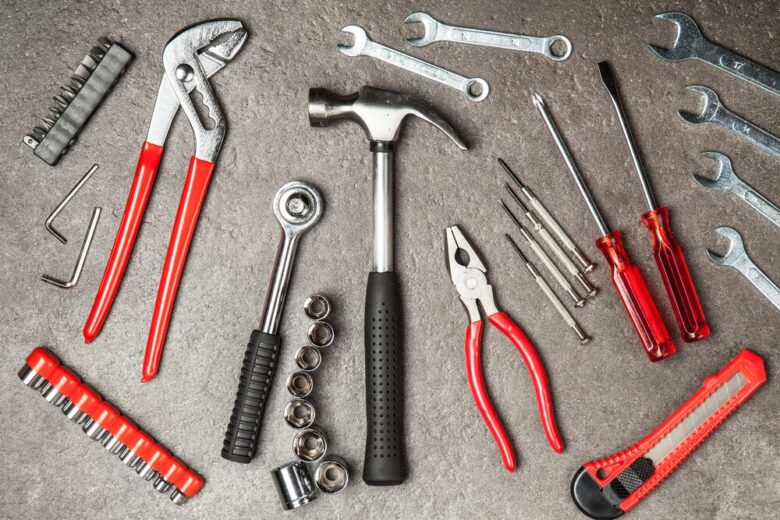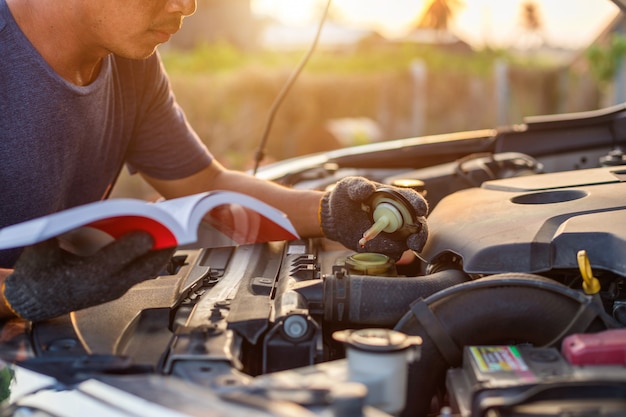If you’ve ever found yourself staring at a mess of wires under the hood, wondering which one is sabotaging your ride, you’re not alone. Many of us have been there, and let me tell you, the right books can turn frustration into confidence. I’ve gone through some real page-turners in my garage days, and I’m here to share the top ones that’ll make you feel like a wiring wizard.
Key Points
- Good books make car repairs manageable and even fun.
- Learn wiring basics without feeling overwhelmed.
- Avoid costly trips to the shop by handling problems yourself.
- Find easy-to-follow guides for all skill levels.
- Access additional tools like a jump starter to tackle battery issues.
Why Books Matter for DIY Repairs
Wiring can seem like sorcery to a lot of folks, but books break it down into language anyone can handle. Even with no formal training, you can follow step-by-step explanations, diagrams, and tips to take charge of your vehicle. Think of them as your silent co-pilot, guiding you toward a perfectly running machine.
The best authors write for regular people, not engineers. They skip jargon and go straight to what matters: how to fix stuff without frying your circuits or your brain. With the right book in hand, even a complete rookie can tackle wiring confidently.
Tips for Choosing the Right Book
- Skill Level: Pick a book that matches your experience. Beginners need simple explanations.
- Vehicle Type: Some books focus on specific makes or models. Match yours.
- Layout: Look for visuals like charts and diagrams. Avoid dense text.
- Author’s Reputation: Trust books by seasoned experts with real-world experience.
Must Have Reads for Mechanics and Enthusiasts
- One title that stands out is Automotive Electrical Manual by Haynes. This classic breaks down concepts into simple lessons with plenty of pictures. It covers everything you’d need, from identifying wires to fixing connections. For beginners or pros, it’s a goldmine of practical tips. Check Goodreads review of this book:

Any reader checking the Goodreads reviews knows that anything above the rate 4 is a great read.
- For hands-on guidance, How to Diagnose and Repair Automotive Electrical Systems by Tracy Martin has your back. It’s packed with clear instructions and real-life examples. It even covers modern systems found in today’s vehicles, which is helpful for anyone working on newer models.
Here is the Goodreads review about it:
“I’m a shade tree mechanic, that is – I can take things apart and when I put them back together, sometimes they work ! As Author Tracy Martin describes perfectly about amateurs like me or even experienced mechanics, auto electrical systems have a certain mystery about them, if not outright (evil) magic in the problems that can develop.”

Books for Wiring Wizards in Training
- For those who love diagrams, Automotive Wiring and Electrical Systems by Tony Candela is a gem. It includes schematics, troubleshooting guides, and expert advice. Everything gets laid out so clearly you’ll wonder why you ever felt intimidated.
- Another must-have is Automotive Wiring: A Practical Guide to Wiring Your Vehicle by Dennis Parks . It focuses on doing things the right way, with tips for avoiding common mistakes. It’s perfect for enthusiasts upgrading their systems or customizing rides.
Books for Pros Looking to Upgarde
- If you’ve already got some experience and want to step up your game, check out Modern Automotive Technology by James Duffy. It dives deep into advanced systems, including hybrids and electric vehicles. It’s a bit technical, but if you want mastery, this one delivers.
- For the detail-oriented, Advanced Automotive Fault Diagnosis by Tom Denton offers insights into diagnostics and advanced tools. It’s aimed at pros, but ambitious enthusiasts will find it inspiring and educational.
Practical Tools to Pair with Knowledge

Equipping yourself with the right tools can transform how you approach repairs. Here’s a list of essentials every DIY enthusiast should consider:
- Multimeter: Perfect for diagnosing wiring issues and testing electrical circuits. It helps pinpoint problems quickly, saving you time and effort.
- Wire Strippers: Ensures clean and accurate cuts for proper wire connections. A must-have for anyone working with vehicle wiring.
- Insulated Screwdrivers: Designed for safety, these are very important when handling live systems. They prevent accidental shocks and protect delicate components.
- Magnetic Trays: Keeps screws, bolts, and small parts organized. No more losing important bits mid-repair.
- Portable Jump Starter: Every mechanic knows that a dead battery can stall progress on any repair job, whether you’re testing a new installation or troubleshooting a system. A reliable portable jump starter ensures you never waste time waiting for assistance or searching for jumper cables.
For example DBPOWER Jump Starter provides up to 60 jump starts on a single charge and works for cars, motorcycles, RVs, and more. This tool ensures you’re never stuck. If you want to be ready for any battery-related issues, find here a tool that complements your efforts and keeps you prepared.
Quick Start Guide for Beginners
If books seem overwhelming, start small. Focus on books that include a beginner’s section with a list of tools and parts you’ll need. Don’t skip diagrams—they’re like treasure maps leading to fixed systems. Mark up pages, take notes, and dive into small projects first. Replace a fuse, install a headlight, or fix a loose connection. Once you’ve got a win, confidence skyrockets.
Tips to Make the Process Easier:
- Set Up a Comfortable Workspace: A clean, organized space with good lighting helps you focus better and avoids unnecessary frustration.
- Start with Basic Tools: Don’t feel pressured to buy everything at once. A multimeter, wire strippers, and a screwdriver set are enough to get you started.
- Practice on Spare Parts: Find old wiring or components to practice on before working on your vehicle. It’s low-risk and builds your skills.
- Use Sticky Notes for Troubleshooting: Keep track of what you’ve checked or replaced. It saves time and keeps you organized.
- Take Breaks When Stuck: If something doesn’t make sense, step away for a moment. Fresh eyes often see what tired ones miss.
Remember, even the best mechanics had to start somewhere. Celebrate small victories—they lead to bigger ones.
Why You Need Books, Even in the Digital Age

YouTube can be helpful, but nothing beats having a solid manual. Books don’t require Wi-Fi, batteries, or a stable internet connection. They’re always ready, even when you’re stuck in a dead zone. Plus, flipping through pages while wearing greasy gloves feels way cooler than tapping on a screen.
Buying a good book may seem like an extra expense, but think of the savings. One repair you handle on your own can easily cover the cost of a manual. You’ll also avoid unnecessary trips to the mechanic, where labor costs can skyrocket. With every skill you learn, you increase your self-reliance.
Conclusion
There’s something empowering about taking control of your vehicle’s systems. Books offer the knowledge to make it happen, even for total beginners. Whether you’re replacing wires, fixing connections, or upgrading components, the right resources make all the difference. Grab a book, a few tools, and you’ll be ready to tackle any problem that comes your way.






